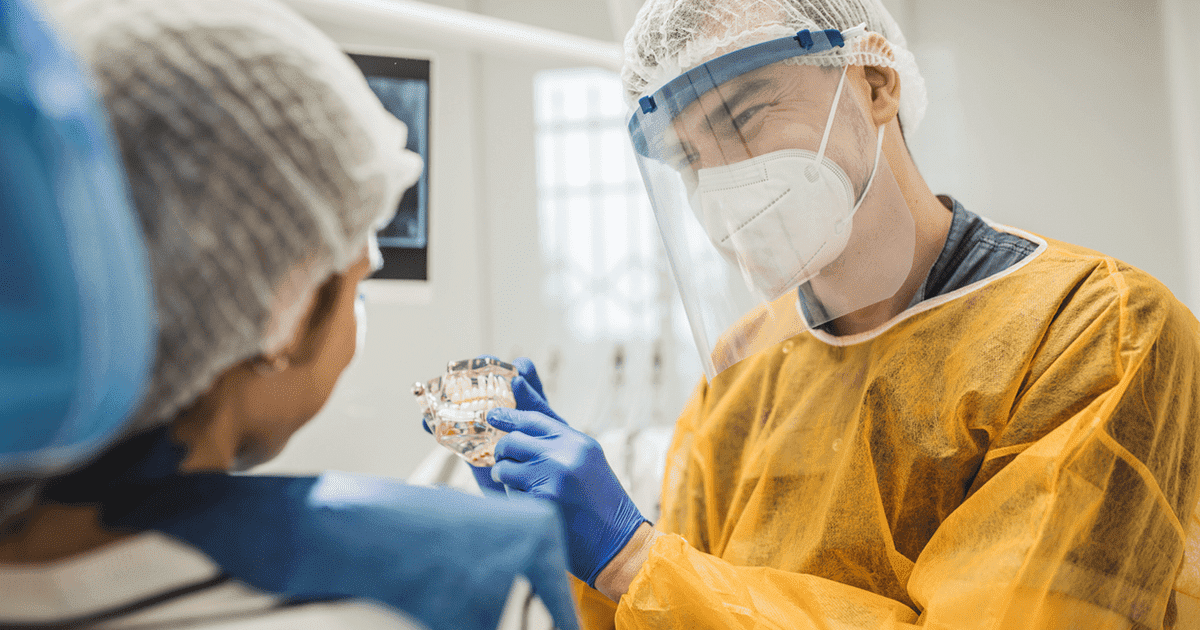Studies conducted around the world have linked periodontitis to respiratory conditions with an increased risk for complications and a higher mortality rate in hospitalized patients ― in patients with chronic obstructive pulmonary disease, pneumonia and asthma, for example.
Now, researchers are examining the link between periodontal disease and COVID-19-related respiratory complications, and early research findings suggest that dental professionals may need to shift their focus to preventing underlying conditions, such as periodontitis, that promote systemic inflammation.
Doing so would not only improve patients’ overall health but could have a significant positive impact on health care systems during the COVID-19 pandemic by decreasing the need for intensive care and mechanical ventilation of patients. Roughly 20% of COVID-19 patients develop serious respiratory complications that can lead to acute respiratory distress syndrome, which along with COVID-19-related pneumonia is the most frequent cause of mortality in those patients.
CDA Journal study examines role of cytokine storms in severity of COVID-19 complications
Oral bacteria can be aspirated and affect lung function, thereby increasing the risk of pneumonia and COPD and potentially COVID-19-related pulmonary complications, according to a study in the October 2020 issue of the Journal of the California Dental Association dedicated to dentistry and COVID-19. The Journal study examines the potential role of cytokine storms ― specifically high interleukin-6 levels (IL-6) ― in the severity of SARSCoV-2.
One of the study’s take-home messages is that oral hygiene interventions and periodontal and dental treatment have the potential to decrease the oral bacterial burden and the systemic inflammatory response. Therefore, treating periodontitis and promoting good plaque control are essential.
“Successful control of periodontal inflammation can be beneficial to the lungs, possibly decreasing severity and risk of COVID-19 respiratory problems,” the Journal study concludes.
Periodontal screening, treatment as prevention against COVID-19
Due to the high transmission rate of the novel coronavirus and the much greater risk for COVID-19-related respiratory complications in patients with high IL-6 levels, dentists should employ periodontal screening and treatments as preventive measures against respiratory conditions, including COVID-19.
Dentists and their teams can promote good oral health hygiene by encouraging patients to brush their teeth twice per day for at least two minutes using a fluoridated toothpaste and to perform interproximal cleaning.
Two minutes of toothbrushing may not be sufficient for periodontitis patients, however. Dentists would identify those patients early to customize their oral hygiene routines and ensure timely reduction of inflammation.
Periodontal treatment is beneficial for systemically healthy patients and for those with pulmonary conditions because it can decrease IL-6 levels and decrease inflammation.
Read more in “The Mouth-COVID Connection: IL-6 Levels in Periodontal Disease ― Potential Role in COVID-19-Related Respiratory Complications” by Shervin Molayem, DDS, and Carla Cruvinel Pontes, DDS, MsC, PhD.

